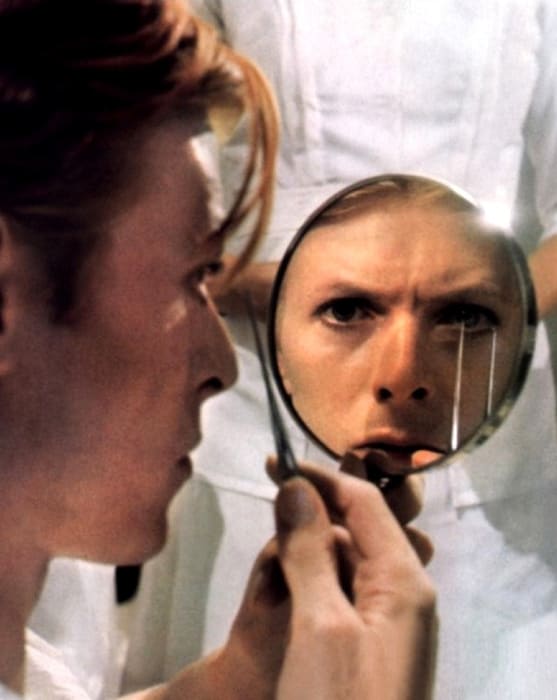Legendary film director Nicolas Roeg reflects on mirrors and memory
“I’ve used mirrors in a lot of movies. I think the mirror is an extraordinary thing, also the reflective, a reflection in water etc. Don’t you think it’s something strange that you rarely look at yourself in the mirror, except to do things like stand and ponder? I mean, in Shakespeare’s day it was thought that the mirror would reveal something, that it is trying to tell you something – not just to tidy your hair, but something more.
“I’ve always thought there was something very marvellous and magical about mirrors, and that they are connected to memory as well. Years ago, I had a friend who had lost her husband. They’d been an extraordinary couple, very much in love for 25 or 30 years, and this terrible tragedy occurred and he was killed. And she told me, ‘I can’t describe this to you Nicolas, I was brushing my hair the other night and wondering about the lighter that he’d had for years and years. It was this amusing lighter – a model of a belisha beacon – and I’d been wondering about it and I was standing in front of the mirror, brushing my hair, and I put my hand in my pocket and it was in my pocket.’ And she said, ‘I knew it, he was back, he was telling me to feel in my pocket. It was an old dressing gown that I hadn’t worn for years’.
“It’s fantastic, I would be called a nutcase, but who knows, memory or something had come to the front of her brain to tell her that it was there. She was thinking of the man, and he was telling her, ‘Look in this pocket’. And I don’t think it’s a nutcase story, because I’m daring to tell it. A lot of people can know that story, can have had that experience, and not believe it at all, be like ‘Oh I wouldn’t have thought that’. But she remembered a moment through the mirror that was not as simple as just a memory. That’s what mirrors do.”
“I’ve always thought there was something very marvellous and magical about mirrors, and that they are connected to memory”
For director Nicolas Roeg, “mirrors are the essence of movies”. A bold statement perhaps, but the motif is one he returns to over and over again in many of his legendary pictures, including Performance, Walkabout, Don’t Look Now and The Man Who Fell To Earth. Starting out working the clapperboard at MGM, he clambered up the ranks, moving into the cutting room, on to operating the camera, director of photography and finally director in a comprehensive process that garnered him an extraordinary range of skills and the low level enmity of David Lean, who resented having his precise vision for Lawrence of Arabia questioned by his DOP.
His influence cannot be overstated in modern cinematography. Eschewing a chronological order, Roeg’s films build in a kaleidoscope of apparently random, dislocated vignettes, straining against logic until the final seconds when the story snaps together with a breathless jolt. In his recently published autobiography, The World is Ever Changing, Roeg considers the myths and legends that still swirl around his sets – from the tales of Anita Pallenberg’s infidelity with her co-star Mick Jagger during the filming of Performance, to the notorious sex scene in Don’t Look Now – with a wry humour, characteristically musing round the myths rather than doing anything as banal as answering straight out. And it is this quality of subtlety and subtext, enigma and revelation, celebrated and cited as an inspiration by the likes of Christopher Nolan, Ridley Scott and Danny Boyle, that make Roeg’s movies such a rich pleasure, and a continued source of debate decades on.
Nicolas Roeg was in conversation with Ray Bennett at The Idler Academy. The World is Ever Changing is out now, published by Faber & Faber.
